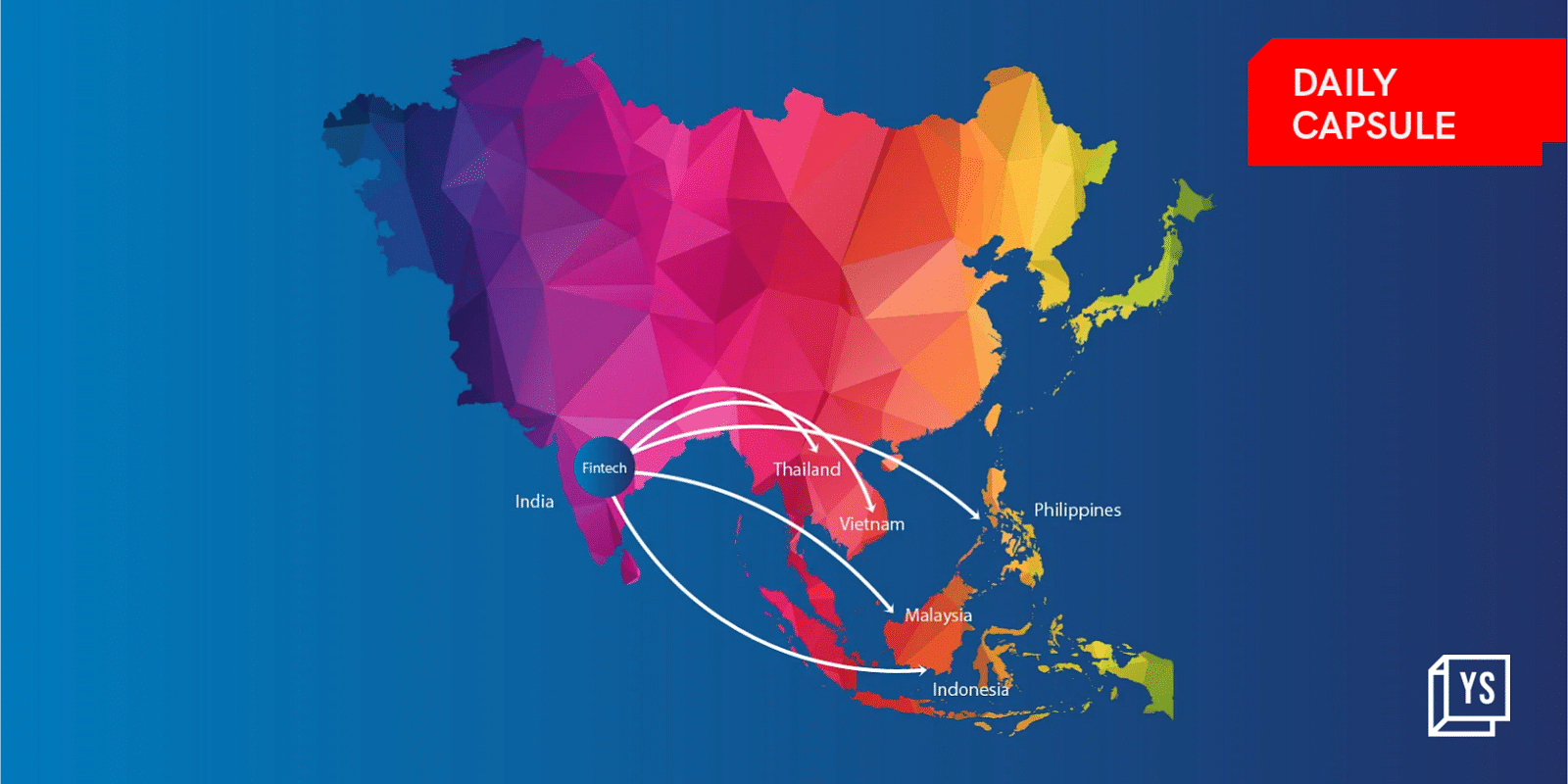Hello Reader,
Stonked. After six days of gains, benchmark indices fell on Monday. While BSE Sensex declined 306 points, NSE Nifty dipped over 88 points.
Foodtech giant Zomato’s shares fell by more than 14% to a record low as the one-year share lock-in period ended. And, of course, Twitter served several memes.
In other news, a customer at a restaurant in southwest China discovered a set of footprints while dining. And guess what? Palaeontologists say they belong to two dinosaurs that walked the planet some 100 million years ago.
Talk about brunch with a side of intrigue.
Meanwhile, the cheetah is set to return to India after disappearing about 70 years ago as Namibia and India finally signed a pact to relocate eight African cheetahs to the Kuno wildlife sanctuary in Madhya Pradesh. But the transportation is yet to be finalised, say media reports.
Indian fintech making way to SEA
The South East Asian (SEA) market has been on the radar of many Indian fintechs as they enter a stage of maturity and gear up for international rollouts. While digital payments (mostly retail PoS) and BNPL (buy now, pay later) are the most popular segments, players in debt collections and supply chain finance are also making inroads.
Among major players are Pine Labs, Razorpay, Mswipe, Vayana Network, Infibeam (CC Avenue), and Credgenics attempting to capture a piece of the pie in their respective segments.
Strategies to win:
- To enter the SEA market, the choice is between building on your own and forming a Joint Venture (JV) with an established partner. The former would make sense only if you have the management bandwidth and local knowledge. However, you would still need a “guiding partner”.
- The M&A (mergers and acquisitions) path becomes a more attractive growth option for companies with access to capital as lower valuations make it easier to jump into newer categories.
- While Indian fintechs have all the leverage, scale, and demand to expand in the region, they will face competition from local fintech giants and emerging players who are upping the game.
“Setting up a business in SEA is as easy or difficult as in India. Regulations are everywhere but you do need someone to help you understand and implement them better,” says Ketan Patel, CEO at Mswipe.
Meet Flipkart’s first Chief Architect
Utkarsh B, the first Chief Architect of Flipkart, equates his 12-year stint at the ecommerce giant to being in a university.
Onboarded as a Senior Technical Lead in December 2010, Utkarsh is among the earliest recruits to look at the data science structures at the company. He has witnessed the transition of Flipkart from a startup to a Walmart-owned entity.
Looking back at his early days in the company, Utkarsh recalls how founders Sachin Bansal and Binny Bansal were a part of his interview, as well as the discussions he had with the then CTO Amod Malviya on building an ecosystem for the future.
Building for Flipkart:
- From building a team of data scientists to creating a robust system for the ever-growing number of online shoppers, Utkarsh has been instrumental in Flipkart’s success.
- The Chief Architect says since his appointment in 2019, the company started committing a third of its resourcing budget to tech excellence, including continuously upgrading the platform, investing in architecture building blocks and other tech-led innovations.
- Flipkart will continue to build and invest in technology play, which makes the platform relatable to the end-consumer, whether it is a local interface, camera integration, AR/VR integration for certain categories, or other experiences.
Utkarsh B, Chief Architect, Flipkart
Clensta’s quest to improve hygiene
IIT Delhi-incubated Clensta started with just one idea: to make personal hygiene accessible and effective for all.
Puneet Gupta, Founder of B2C brand Clensta—realising the deaths caused by diseases associated with pigeon droppings—created a pigeon repellent that would keep the birds away without harming them.
“In India, we feed pigeons. But abroad, they are considered pests, similar to rats. After a lot of research and deliberation, we came up with a pigeon repellent that can be sprayed on the area where the birds leave their droppings,” Puneet says.
The repellent, which keeps the pigeons away, is among the various personal and home care products offered by Delhi-based Clensta, founded in 2016 and began by developing waterless cleaning products.
Key takeaways:
- Clensta has grown its portfolio to include skincare with scrubs, lip creams, moisturising creams, face serums, and home care with cleaners, repellents, room fresheners, car care kits, and more.
- Its products, used by the DRDO, Indian Army, and Indian Navy, are priced between Rs 200 and Rs 800, with an average basket size worth Rs 700. Clensta’s GMV reached Rs 58 crore for FY22 from Rs 10.6 crore for FY19.
- At present, Clensta outsources product development to external laboratories, based on needs and requirements, on a contractual basis. The products are manufactured in a plant in Uttar Pradesh.
“For the time being, we have only one lab on the IIT Delhi campus. We need more laboratories that are continuously working with us to maintain the repeat ratio and improve our products further,” Puneet says.
Clensta Pigeon Repellent
Now get the Daily Capsule in your inbox. Subscribe to our newsletter today!






![Read more about the article [Funding roundup] RAS Luxury Oils, Minus Zero, others raise early-stage deals](https://blog.digitalsevaa.com/wp-content/uploads/2022/03/V-05-1600852077699-300x150.png)



